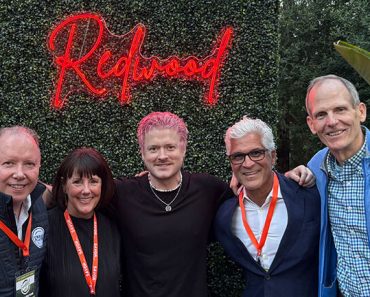You’ve probably already heard of Eurovision: Europe’s grandest stage for international music exchange and celebration. The competition has a storied history, with humble beginnings dating back to the 1950s and later serving as a device for fostering Pan- European identity throughout the Cold War and in more recent years.
It’s also never been more popular, drawing in 163 million television viewers in 2024 and another 81 million in unique YouTube views. If you’re unfamiliar with its premise, think of it as a World Cup-type competition for European and Slavic nations, where each country sends one artist to perform an original song live against 35+ other acts representing their homeland. The contest winner is decided over a period of several days by a panel of judges and viewer-submitted ballots, culminating in a spectacle with sky-high entertainment value. Italy (2021), Ukraine (2022), Sweden (2023) and Switzerland (2024) represent the last five years of victors.
Not many people know that Eurovision was first created as TV filler – a way for the European Broadcasting Union (EBU) to test the viability of international broadcasting content. Obviously, it has grown into a cultural phenomenon since then and a touchpoint for global media. Many governments and political leaders over the years have viewed the event as a way to convey a specific nationalistic or cultural message about their country.
Greece itself only competed in Eurovision after the fall of the junta dictatorship to reflect a broader reopening of Greek society to Western institutions and values. Greece also didn’t award Turkey a single competitive vote throughout the 1970s, underscoring the high tensions felt between the two nations following the invasion of Cyprus in 1974.

Today, language politics dominate most debates about Eurovision’s current thematic flavor. 1965 marked the first year a non-English speaking nation performed a song in English – that was Sweden – which began a trend that would continue and now represents the rule, rather than the exception, of the contest’s participants. Last year, a whopping 19 out of 37 countries performed their entries entirely in English (over 50%), with another six participants delivering bilingual entries so as to better feature the English language.
The original goal of Eurovision was to bring Europe’s many nations together under the umbrella of one competition to showcase the distinct national music culture of each country. What we have today are 35+ nations attempting to replicate American pop music every year, which has diluted the event’s purpose and introduced a palpable current of globalism to the proceedings. Case in point, songs performed exclusively in English have taken the winning spot 21 times since 1999.
Displaying the unique heritage of each participating country should regain its place of emphasis in Eurovision, rather than the current transnational feel of the event. Greece still possesses a rich and traditional music scene, where our musicians continue to perform regional songs at ‘panegiria’ and concerts across the country. We should be representing that uniqueness on the European stage, and the same goes for every other country’s distinct musical identity, instead of elevating the same synthesizers and drum machines that dominate American airwaves and defeat the purpose of Eurovision as an international cultural exchange.
As a member of the Greek Diaspora, I believe a Greek victory at Eurovision is only worth celebrating if it showcases and elevates traditional Greek music. Both Greece and the broader European community hold rich, distinctive cultural heritages. Reducing these identities to fit a homogenized global pop standard undermines the very spirit of what Eurovision is meant to represent: a celebration of diversity through music.
Chris Benis is a Greek-American from Seattle, WA, and has roots in Kythira and Larissa. He is a recent graduate of Loyola Marymount University and currently attends the University of Southern California as a Master’s Degree candidate.






